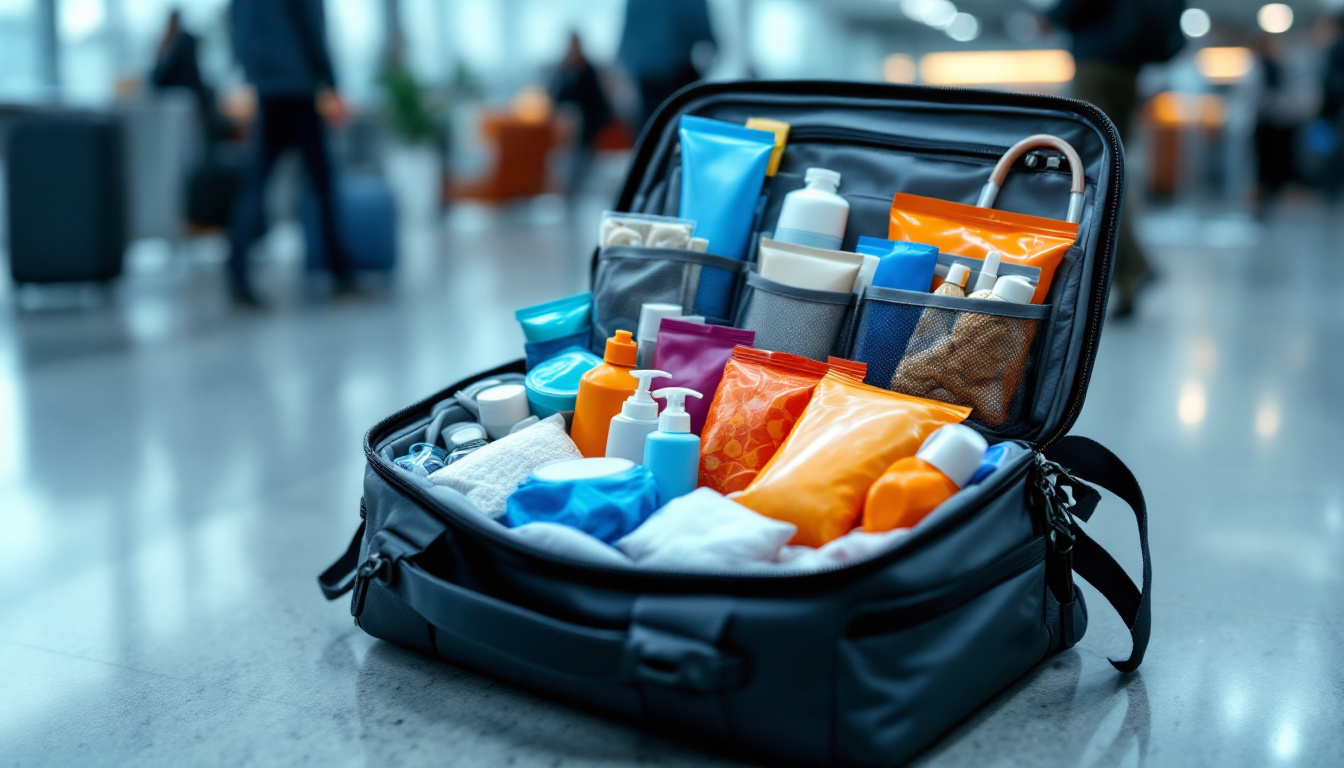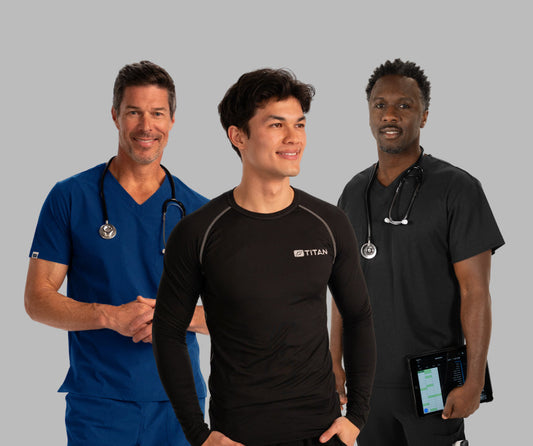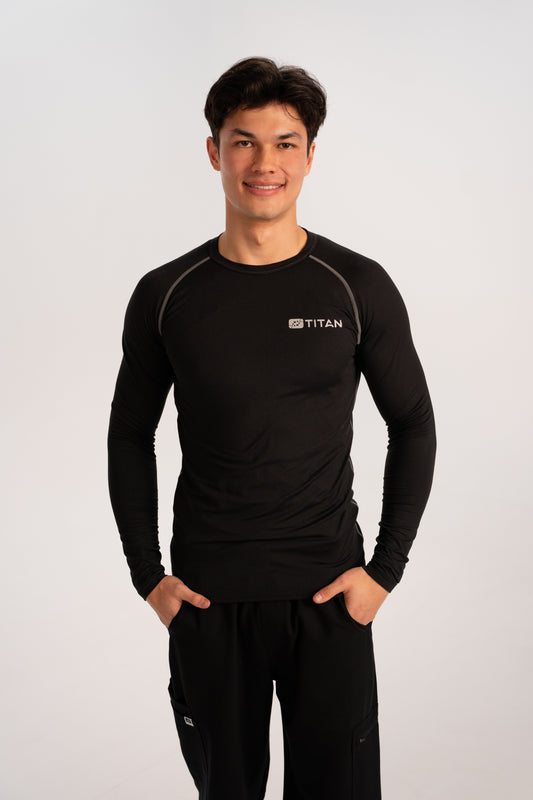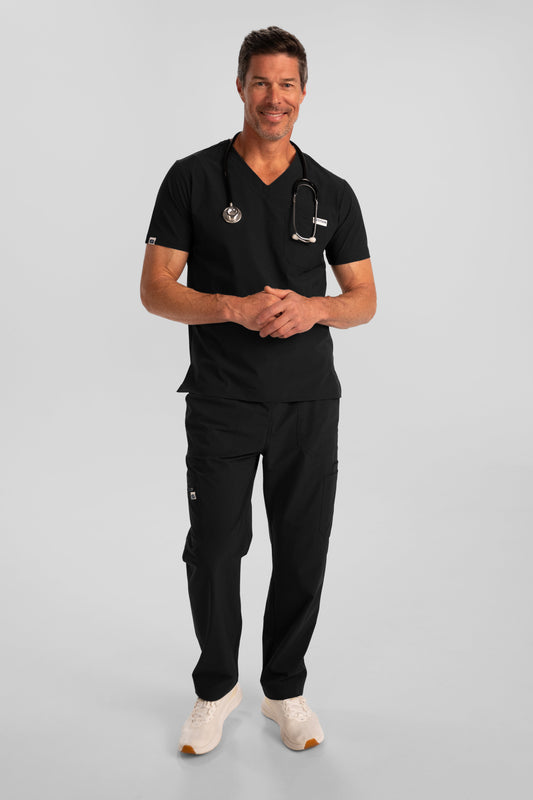Why Healthcare Professionals Need a Thoughtful Packing List
Packing for travel can be a daunting task, especially for healthcare professionals who are often in the field. A thoughtful packing list not only helps prevent last-minute scrambles but also ensures that you have everything you need to perform your duties effectively. According to a study by the American Nurses Association, 77% of nurses reported that being unprepared negatively impacted their performance during critical shifts.
When you are on the go, every item you bring can either enhance your efficiency or hinder your ability to provide care. Therefore, having a well-curated packing list is essential to address the specific needs of healthcare professionals.
In addition to the standard medical supplies, a comprehensive packing list should also consider personal items that contribute to overall well-being. For instance, packing comfortable shoes can make a significant difference during long shifts, while including healthy snacks can help maintain energy levels throughout the day. Furthermore, healthcare professionals should not overlook the importance of mental health; items such as a journal or a favorite book can provide a much-needed escape during downtime, helping to alleviate the stress that often accompanies the job.
Moreover, technology plays a crucial role in modern healthcare, making it vital to include chargers, portable devices, and even backup batteries in your packing list. Many healthcare professionals rely on apps for patient management, medication reminders, and accessing medical databases, so ensuring that these devices are fully charged and ready to use can streamline workflows and improve patient outcomes. By being proactive in packing, healthcare professionals can focus more on their patients and less on logistical challenges, ultimately leading to a more effective and fulfilling work experience.
Essential Scrubs and Clothing: Dressing for Comfort and Functionality
Your attire is more than just a uniform; it plays a critical role in your comfort and professionalism. Opt for scrubs that are breathable, stretchable, and easy to wash. Look for materials like cotton blends that offer moisture-wicking properties. Choosing the right fabric can make a significant difference in how you feel throughout your shift, especially in high-stress environments where you may be on your feet for hours.
- Moisture-wicking scrubs by Titan Scrubs
- Layered clothing for varying temperatures
- Comfortable undershirts
- Compression socks for better circulation
The nature of the job can demand long hours of wear. Investing in high-quality scrubs may come at a higher price initially, but they can save you from discomfort, increasing your productivity. Additionally, consider the fit of your scrubs; a well-fitted outfit allows for a full range of motion, which is essential when performing tasks that require bending, stretching, or lifting. Scrubs that are too tight can restrict movement and lead to fatigue, while those that are too loose may snag on equipment or pose a safety hazard.
Moreover, the color and design of your scrubs can also influence your work environment. Bright, cheerful colors can uplift your mood and create a positive atmosphere for both staff and patients. Many healthcare facilities have embraced the trend of personalized scrubs, allowing employees to express their individuality while still adhering to professional standards. This not only fosters a sense of community among coworkers but can also help patients feel more at ease in clinical settings. Remember, the right combination of style and functionality can enhance your overall experience in the workplace.
Must-Have Footwear: Comfort and Support for Long Days
Footwear plays an important role in maintaining physical health during long shifts. The right shoes can help prevent fatigue and long-term injuries. Ideally, footwear should provide adequate arch support and cushioning. This is particularly crucial for those who spend hours on their feet, whether in healthcare, retail, or any other demanding profession. The right pair of shoes not only enhances comfort but also boosts overall productivity by allowing individuals to focus on their tasks rather than discomfort.
- Supportive sneakers or clogs
- Non-slip soles for safety
- Water-resistant options for unpredictable environments
A research report by the American Podiatric Medical Association states that over 75% of healthcare workers experience foot pain due to inadequate footwear. So, choose wisely to avoid added stress on your feet. Additionally, investing in insoles can further enhance the comfort of your shoes, providing extra cushioning and support tailored to your unique foot shape. Many brands offer orthotic-friendly options, allowing you to customize your footwear experience.
Furthermore, it's important to consider the materials used in your footwear. Breathable fabrics can help keep your feet dry and comfortable, reducing the risk of blisters and fungal infections. Look for shoes that incorporate moisture-wicking technology, especially if you work in a fast-paced environment where you may not have the chance to sit down. Remember, your feet are the foundation of your body, and taking the time to select the right footwear can make a significant difference in your daily comfort and overall well-being.
Medical Tools and Supplies: What to Bring to Stay Prepared
Medical professionals require specific tools and supplies that are essential for patient care. Depending on your specialty, this can range from basic stethoscopes to specialized equipment.
- Stethoscope
- Pocket-sized diagnostic tools
- Hand sanitizer and gloves
- Medication reference guides
This diverse toolkit prepares you for various clinical scenarios while you’re on assignment. Make sure to check each item off your list before traveling to ensure that you are fully equipped for your responsibilities.
Personal Care Items for Long Shifts and Travel Days
While attending to others, don’t forget to prioritize your own personal care. Stocking up on essential items can maintain both your hygiene and morale.

- Toothbrush and toothpaste
- Deodorant
- Moisturizer for dry skin
- Travel-sized toiletries
Traveling light doesn’t mean sacrificing your comfort. Carrying some personal care items ensures you're at your best when it matters most.
Tech Gear for Staying Connected and Efficient
In today's digital age, technology can substantially assist healthcare professionals in managing their workloads. Certain gadgets and applications can streamline communication and enhance efficiency.
- Smartphone with healthcare apps
- Tablet or laptop for notes and telemedicine
- Portable charger for longer shifts
Having the right tech gear enables seamless collaboration with colleagues and quick access to vital information, facilitating better patient care.
Snacks and Hydration: Staying Energized While Traveling
Long shifts can lead to exhaustion, making it essential to replenish energy levels. Healthy snacks and staying hydrated can make a significant difference in your performance.
- Protein bars and nuts
- Fresh fruits or dried fruits
- Water bottle for hydration
Carrying your own snacks not only keeps your energy up but also contributes to your overall well-being. Did you know that dehydration can lead to decreased concentration by up to 25%? Hydration is critical!
Travel-Specific Items for Healthcare Assignments
Packing for travel includes several specialized items that can be vital for healthcare assignments. These gear options can make your experience smoother.
- Luggage that is easy to carry
- Compression bags for efficient packing
- Travel pillow for comfort on long journeys
These small details can contribute to a more organized travel experience, allowing you to focus on patient care without hassle.
Tips for Keeping Your Packing Light Yet Comprehensive
Finding a balance between a comprehensive packing list and minimizing weight can be tricky. Here are some expert tips that I have found useful:
- Choose multi-purpose items whenever possible.
- Utilize packing cubes to streamline organization.
- Layer your clothing for versatility.
Simplifying your packing can save time and energy, allowing you to focus on what truly matters during your assignments.
What to Include in Your First Aid Kit
A well-stocked first aid kit is essential for any healthcare professional on the go. It helps in addressing minor injuries or health issues that may arise.
- Adhesive bandages
- Gauze and medical tape
- Antiseptic wipes
- Pain relief medication
Keep your first aid kit readily accessible, as it can be useful both in your profession and in everyday situations.
Bonus Items to Enhance Your Travel Experience
In addition to essential items, consider adding a few bonus items that can enhance your travel experience. These may not be necessities, but they can improve your overall comfort and convenience.
- A compact umbrella for unexpected weather
- Noise-canceling headphones for relaxation
- A good book or an audiobook subscription for downtime
These bonus items can add value to your travel experience, ensuring you remain recharged for your demanding job.
How to Stay Organized: Packing Strategies for Healthcare Pros
Organization is key to effective packing. A systematic approach can help you transition smoothly between assignments. Here are some best practices:
- Make your packing list well in advance.
- Sort items by categories—medical supplies, clothing, tech gear, etc.
- Check items off the list as you pack them.
Mindful organization prevents last-minute chaos and supports you in retaining focus while preparing for new adventures.
What Not to Pack: Avoiding Unnecessary Items
A vital aspect of effective packing is knowing what not to include. Unnecessary items can take up precious space and make your luggage heavier. Here are some common culprits to avoid:
- Excessive clothing—stick to essentials.
- Duplicate items—choose multifunctional gear.
- Non-essential tech—leave behind items you won't use.
Simplifying your belongings not only lightens your load but also focuses your attention on what truly matters.
How to Adapt Your Packing List for Long-Term Assignments
When preparing for long-term assignments, it may be necessary to adjust your packing list accordingly. Consider the duration of your stay and the availability of local resources.
- Pack additional clothing and personal care supplies.
- Include items for hobbies or relaxation.
- Research the area for local shopping availability.
By customizing your list, you can ensure that you’re both comfortable and prepared, regardless of the length of your assignment.
In conclusion, a well-organized packing list can significantly impact your effectiveness and comfort as a healthcare professional on the go. By incorporating these thoughtful strategies, you can enhance your travel experience while being fully prepared to provide quality patient care.







